The inaugural Beyond the Music (BtM) conference and festival was held in Manchester, UK between 11th and 14th October; a successor (eventually) to the In the City event, which was last held in 2010.
What follows is an independent report on the event, good and bad (largely good, I might add, straight away) along with my take on it where I deem it appropriate. It is quite long but I feel obliged to write a full report having been offered a media ticket. I couldn’t attend all the sessions but managed most of them.
I have not named individual speakers and panelists unless there is a specific reason to do so.
This review will also be published online across social media including music industry related groups on LinkedIn.
My comments on speakers’ comments are in italics.
The conference venue shifted from the swish Midland Hotel, where the opening event had been held the previous evening (see the separate review https://www.nordicmusiccentral.com/beyond-the-music-conference-festival-manchester-the-last-supper-opening-event/), to the more mundane Manchester Central complex where the Conservative Party conference had been held the previous week. In the neighbouring conference hall one of the Tysons was being weighed for a fight and tough looking youths strutted their stuff outside. Fortunately, our venue was all peace and love.
Panelists at the ‘Last Supper’ event
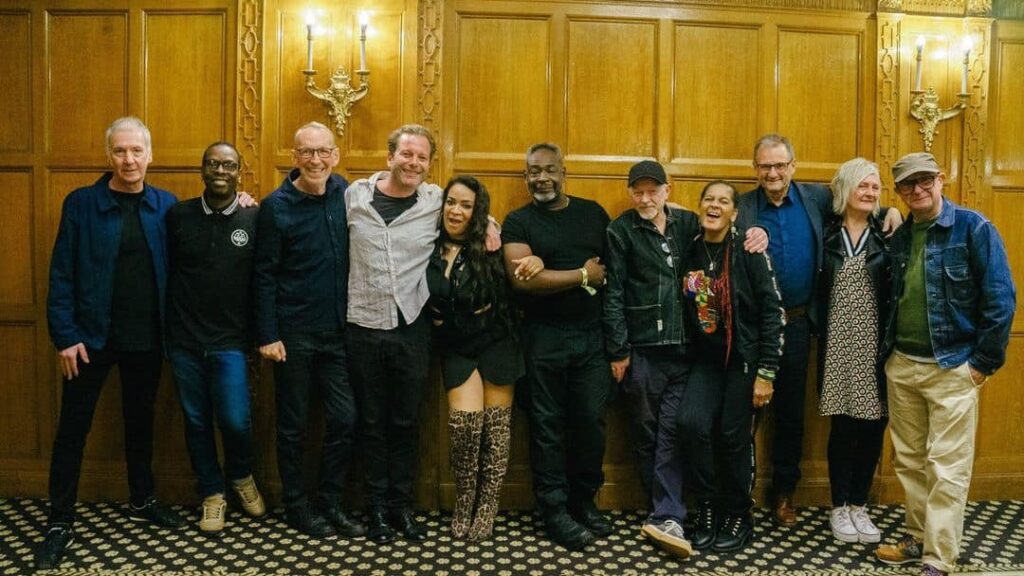
Source: Beyond the Music/@lucycrgart
The main venue was windowless, dark, and lit with static and moving disco lights with the stage set in the round. It created an appropriate effect for sure, although I would have preferred some natural light. (The other room, in occasional use, was far better lit).
CONTENTS BY SESSION
| Session |
| Where are we now? |
| The value of music |
| Rethinking the economy of music |
| What should a modern music company look like? |
| Interview with Rita Ora |
| The music industry’s duty of care when it comes to artists’ mental health |
| Green Summit: Net Zero by 2050 – moving forward music’s sustainability revolution |
| Capital Punishment, Does the future of the music business lie outside London? |
| Creating a UK parliament for the music industry |
| The Evolution of Independent Venues: Reinvigorating the UK’s Cultural Health? |
| Does UK politics place enough value on music? |
| The Mayors’ (Live) Show: Metro leaders come together to change visa issues for musicians |
| Rage with the machines: Taking charge of the AI revolution |
| Who’s feeding the grassroots? |
| Beyond Streaming: Future planning for the next technology revolution |
| Summary – what BtM did right and what might be improved |
Day 1
I arrived during the opening Keynote Session involving Keith Harris OBE, who has been Stevie Wonder’s manager, and the manager of Aitch, the previous night’s final contributor, and one of the few music producers working out of Manchester, Michael Adex, on the subject ‘Where are we now?’ They might have been played in by Alan Walker’s ‘Faded’ but to be fair to Manchester we weren’t in Atlantis today and outside the sun shone brightly out of a cloudless blue sky.
Some of the observations arising out of the dialogue were:
- It is possible to be a ‘big name’ in the music business but totally unknown amongst the general public
- Young artists choosing to locate in Manchester are often influenced by its musical heritage
- Formal degree education is not important in music management, including music education [Adex]. (That is a contentious observation and it would have been interesting to hear the views of, say the BIMM College, which is within walking distance of the venue).
- Word of mouth remains as important as ever in record promotion as does networking
- The biggest factor, still, is luck.
Next up was Tom Gray, of the Ivors Academy, the UK’s independent professional association for music creators and best known for the Ivor Novello awards, and the Broken Record campaign which, inter alia, fought for a fairer share of streaming income during the Covid pandemic, speaking on the subject of The value of music.
Describing the industry as “An Everyday Miracle” he pointed to the ‘disruptors’ (the streaming companies) having turned out to be ‘the enemy.’
He spoke of the importance of putting music back into schools and of how little consequence the industry is to government, which brackets it in the Department of Culture, Media and Sport as a political afterthought.
He observed that there is no UK Music Export Office, which exist in many other countries, including all the Nordic ones of course.
His main proposal was that a musical version of the LEPs (Local Enterprise Partnerships) was needed but did not suggest that there should be multiple ones throughout the country as is the case with the 38 LEPs.
Following Mr Gray came the first panel session, Rethinking the economy of music, which was described as ‘the biggest issue and biggest challenge.’ Remarks were aimed mainly at start-ups in the business.
Some random comments:
It was the first session to mention the importance of education about metadata. The cost of building an audience abroad is huge but at the same time global market opportunities are increasing. The billons generated by the music industry helped pay for furlough (that’s quite a claim but worthy of consideration).
Musicians today have to do more than make an album to make a living. But again on the other hand some of the old ‘gateways’ have been removed from the system.
The advice was to make the best music you possibly can while ensuring you have a vision right from the start. Ignore those with a short-term view who say “I got one million views on TikTok before approaching a record company.”
Forget the millions of TikTok views and focus on the 20 followers who will stick with you and offer word of mouth support. Focus on the future, beyond TikTok. (That subject was also dealt with in later sessions.)
There is still a case for the Old School approach to artist development – supported albums marketed in specific timeframes with planned campaigns.
For managers, £200,000 annual income from bands pays out only £30,000 in personal earnings after all overheads are absorbed.
Small labels have been devalued since 2015 when the majors set up smaller subsidiaries to compete with them.
The Arts Council pays 85% of its budget to support classical music.
Concerning the impact of Brexit, the biggest problem is taking merchandise with you abroad (see other remarks on this subject on Day 2).
Some streaming companies are improving their offer, by way of new payment methods and the addition of artist info, but fundamentally the system needs ripping up. At the very least the basic £11 package needs rethinking with segregation of musical genres, perhaps at a higher price, but with the potential for bundling.
Should the industry go on strike, like Hollywood actors? No, there is no centralised authority to negotiate with.
Should artists follow the TikTok ‘influencer’ tradition? No, follow the platforms that work for you.
Why are artists selling their catalogues? To make money while they still can of course, by releasing their ‘equity’, but they need to sell to a music company not an investment fund to retain their credibility in the long term.
The second session was What should a modern music company look like?
Some panelist takeaways:
The music industry needs to be ripped up – artists can dictate their own future by way of social media and self recording.
The business will be more holistically managed in the future with record producers, labels and distributors coming together under one roof.
Artists are turning against streaming because they cannot build their own brand awareness through it.
“A guy I manage eschewed TikTok but promoted himself through gaming (in which he participated himself) building up a fan base that way.” (But that is surely self-defeating in the lack of scope? How big was the fan base? Gamers game, they don’t have much time to listen to music).
This was probably the least impactful session in the sense of the few conclusions it drew.
The following session was an interview with the established artist Rita Ora and her long-time manager Sarah Stennett, who is also an A&R executive and a lawyer.
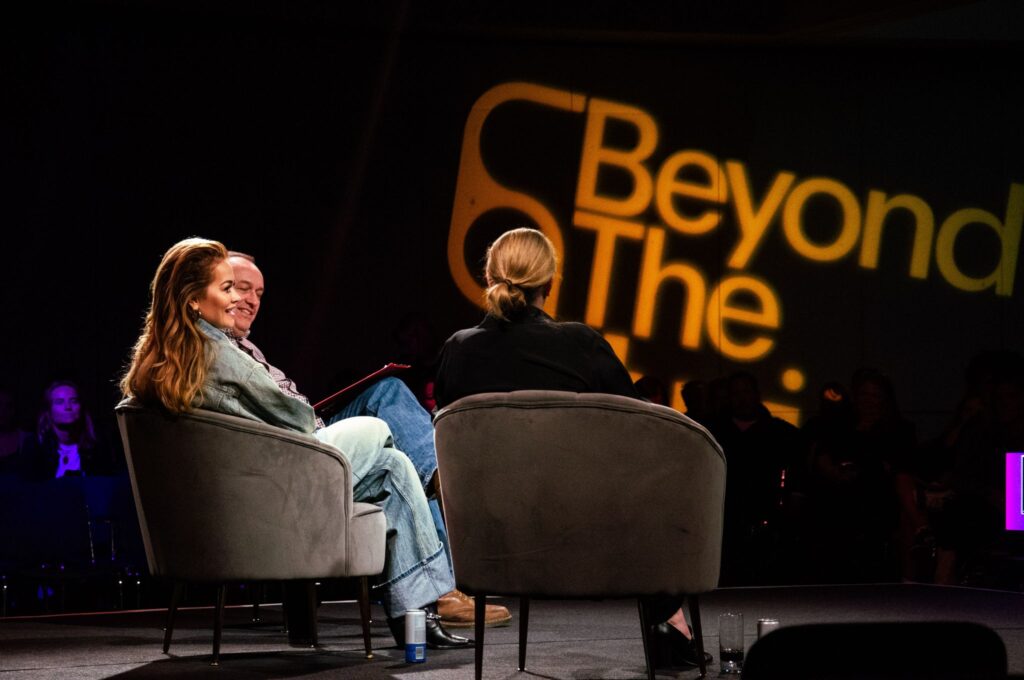
Source: Beyond the Music
I’m not too familiar with Rita Ora’s work despite her holding the record for number one chart positions in the UK, even outscoring Madonna. She came across as a notably articulate individual with an engaging personality, a well rounded person indeed, and quickly won me over. I was pleased that she avoided industry jargon and spoke in plain English.
Her mantra is to find people who care early on, as she did with her manager, at the age of 17, as they can be influential in the ‘down’ moments which will occur in every artist’s life. She is strong willed and declined the opportunity to represent the UK at Eurovision as it would impact on her developmental plan.
She also stressed the need to develop a spine to handle the hard times and equally to be humble when success is achieved.
She is proud of the deal she achieved to gain ownership of her own Master Recordings.
She was the first contributor to speak of the competition she faces in the industry, the pressure to keep churning out hits and how it affects her, almost as a precursor to the mental health session which followed hers.
Rita released her first album in 2012 “when streaming didn’t exist” (it did, but not to anything like the extent we know today) and Sarah Stennett described TikTok as ‘a lottery’. (You can’t help but get the impression that both of them are ‘old school’).
The desire of both parties in their team is to ‘create a community’ of followers who feel they belong to it. Rita stressed the importance of inner self-worth and self-reliance and both referred to the excitement of not knowing what is around the next corner that it is at the heart of being part of the music business.
One little disappointment was that neither could offer much beyond ‘just keep going’ as advice to those whose personal enthusiasm was faltering.
Which leads us neatly on to the next session, The music industry’s duty of care when it comes to artists’ mental health.
I have to admit that I was previously ambivalent about proclaimed mental health problems in the music industry. Are they worse than in any other business? Did Covid have a greater impact on musos than it did on anyone else? Is bullying or discrimination worse than in any other occupation? Is being fired off by your label any worse than being fired from your 9-5 office job?
While I’ve never subscribed to the ‘pull yourself together’ philosophy is it not the case that we all have to suffer the slings and arrows of outrageous fortune at one time or another? And some of the artists I review seem to thrive on misfortune.
However, this was an enlightening session, embracing factors I hadn’t taken into account including the fact that musicians spend so much time sitting around purposefully doing nothing, especially on the road; that environment alone can lead to loneliness and depression. Someone described being on tour as like living in a parallel universe (which makes me wonder how some people can tour continuously for an entire year or longer).
It made me think of some musicians at the top of their game and highly successful, who have quit in the last two years, hinting at the stresses of perpetual touring rather than openly admitting to it.
It seems that musicians are three times more likely to suffer from mental health problems than the general population so there is something going on. Some advice was forthcoming, such as seek help early – which almost goes without saying but who does? – and to schedule tasks by day as if it was an office job. Bring routine into your life.
There was also talk of the need for a ‘Duty of Care’ clause in contracts but it seems to me that would be difficult to achieve short of being laid down in law for everyone.
The overall impression I got was of an industry that is still recognising the depth of the problem and identifying symptoms. Weighed against that is the growing number of professional musicians training in mental well-being. There were several of them on the stage. In no way is the problem being ignored; indeed quite the contrary.
I’m sorry to say that I immediately turned off from the session Green Summit: Net Zero by 2050 – moving forward music’s sustainability revolution when one of the panelists blurted out “we’ve got seven years left to save the planet”, straight out of the Greta textbook. (Later, he started chunnering on about Brexit, as if that was somehow responsible for the warm September we had). Well if that’s the case I suggest musicians step up their output, live for today and sing a happy tune because there is nothing they can do to change an outcome that is that close.
I was also surprised to hear that only 3% of global philanthropy is directed at climate matters. I’d have thought Soros far exceeds that, just on his own.
Let’s look at some detail. The notion of reducing the environmental ‘impact’ of a tour is one that appeals to me, but how can you do that apart from traveling around between gigs in an electric bus? Are you going to dim the onstage lighting? Play in the dark? Do you limit the number of people who can attend and stop them coming altogether if they are travelling more than a proscribed distance?
When it was revealed that one of the organisations involved in this was looking at ideas to curtail artist/ band travel internationally that concerned me. It wouldn’t endear the organisation, or the artists for that matter to the fans. Will they be expected to live stream again instead? Is that what ‘live’ music is about? I thought we’d buried that along with Covid.
But the music industry doesn’t have to worry about this sort of thing anyway. I work in the air transport business. Let me tell you that the organisation C40, one of “nearly 100 mayors of the world’s leading cities” (I don’t know if Greater Manchester’s Mr Burnham is a member) wants to limit your international air travel to one trip every three years.
Meanwhile, UK Fires, an association of leading academics and captains of industry, wants to stop all air travel involving the UK that is not on electric aircraft before 2030. There will be no electric or hydrocarbon aircraft in commercial service by anything near that date. Trust me. So if it has its way you won’t be flying anywhere, whether you are an artist or a fan. Unless you can afford a private jet of course. There will still be plenty of those up there.
It also wants to see just three airports in the whole of the UK as soon as 2026.
These pressure groups are multiplying like rabbits and one day soon they will get their wish.
So the music business needs not fret about what it can and can’t do about the climate; about being a ‘climate ambassador’ or ‘creating a climate pact to save the industry’. The fanatics are coming to its door and will kill off live music that is not played within the confines of your 15-minute city.
It strikes me that there are many other matters that the industry might be better protesting about than the climate. Band Aid might be a dim and distant memory now but has anyone, anywhere, written a protest song about the treatment of the Rohingyas? Or the Uyghurs? The Coptic Christians? The Zoroastrians? I could go on and on. Or about the huge number of species that are being eradicated by man or are on the verge of so being? (I defer to Nightwish on that – they have).
Indeed, what happened to the protest song, period? Where are the Joni Mitchells, the Joan Baez-es, the Bob Dylans, the Bruce Springsteens, the Joe Hills (Google him)? The only one I can think of is Weyes Blood and butter wouldn’t melt in her mouth. I rest my case.
The session Capital Punishment, Does the future of the music business lie outside London? asked whether the gravitational pull of London has subsided. The consensus was that it has on account of musicians being priced out of the capital, the lingering impact of the pandemic, and the fact that you can contact anyone, anywhere in the world, from your living room or bedroom, and play them the music you have made there.
The Dick Whittington syndrome doesn’t apply any longer. The streets are more likely to be paved with lead than gold. You won’t get anything done beyond what you can do in the regions and will pay through the nose to do it.
The representative from PPL PRS supported how the music licensing and copyright organisation is based in Leicester, where it gets as much done as it ever would in London, at considerably reduced cost.
However, the regions are still missing the return of the non-London based A&R scouts. They have decamped to London and only rarely cross the M25. While A&R is a trade that has withered on the vine in recent years its return to the regions would be a fillip that would benefit them enormously.
Unfortunately, circumstances meant I could not stay for the final session, ‘Is Britain’s talent pipeline blocked’, so straight on to the second day.
Day 2
The opening session, with Manchester’s archetypal rain making its presence felt outside, was Creating a UK parliament for the music industry, one of three outright politically themed ones that took place on the day.
The main thrust was that music is ignored in the conversation about the economy, and it is one with which I wholeheartedly agree.
When the Government “turned down an opportunity for visa-free travel in Europe” by which musicians could perform there that was a genuine grievance for them, but the other side of the coin is that the Government claimed it had pressed for a better deal still for both musicians and other live entertainers which was rejected by the EU.
In any case you can still get into the EU for up to 30 days to perform without a visa although there are other hoops to jump through.
The most intriguing part of this session was what turned out to be a longwinded rant by the owner of the Brudenell Social Club in Leeds, a successful small-medium sized venue. He made some worthy points:
- That any ‘Music Parliament’ needs to feed directly into the Westminster Parliament, not stand aside from it
- That there is a lack of infrastructure to deliver musical development – who should fund that?
In a discussion about what Office the panelists would like to have in this Music Parliament he declared himself to be ‘The Minister for Happiness’, which elicited some mirth from the other delegates – “from Yorkshire?”
Arguments were put forward for a Regional Music Export Office as there is no national one, with the funds puts in locally to be matched by a central government contribution but that sounds like pie in the sky and there is no saying how voters would react to such a proposal as their direct and indirect taxes would probably be what would pay for it.
Greater Manchester Mayor Burnham added a comment that ‘Agent of Change’ (AoC) legislation is coming “soon” in Greater Manchester. AoC ensures that the responsibility for mitigating impacts from existing noise-generating activities (like music venues) is placed on the proposed new noise-sensitive development (like a block of apartments).
But equally, as people sometimes forget, if a new venue or noise generating development is built near to an existing residential development, the onus will be on the new development to put in place the noise mitigating measures.
The issue is especially pertinent to Manchester and the venerable Night & Day venue is consistently threatened with closure by Manchester City for creating excess noise that disturbs nearby residents in newly built accommodation.
Unfortunately it is difficult to extract any concrete and achievable proposals from this session.
The session on The Evolution of Independent Venues: Reinvigorating the UK’s Cultural Health? was notable for some fascinating insights, such as the one from the CEO of The Band on the Wall, another august Manchester venue,and one which has had a quite lavish makeover during the pandemic.
He revealed that during that makeover a small outside area was left without a roof and has become the central meeting area that the venue needed, come Manchester rain or not. It was “the best thing I ever did” he said.
Observations included:
- “Venues need to cater to what customers want”, which sounds rather obvious to me
- “Gen Z doesn’t go to venues any longer and if/when it does, it doesn’t drink alcohol” (so forget that as a revenue stream and stock up on water)
There was a lengthy discussion on whether women are still being ignored in the industry, which had little to do with the title of the session. Various statistics were trotted out detailing for example the ratio of female to male artists appearing at Glastonbury.
The conclusion, not unsurprisingly, was that they are. I could write many pages on this subject but permit me merely to say that they aren’t in the Nordic countries.
Check out this response from a label manger and entrepreneur in Sweden: “I would actually say that, it’s rather the opposite here In Sweden! And female artists from Sweden are definitely more successful than males both in the international and local scene here. But male artists are not ”ignored” in any way either….”
Perhaps a delegation should head over there and find out why female artists thrive in the Nordics.
The following session, Does UK politics place enough value on music? was a highly political one with three Members of Parliament represented on the panel, two from the House of Commons and one from the House of Lords.
One delegate, not a politician but an artist, got on his soapbox and demanded “money, working spaces, tax breaks…” – few of which are likely to be forthcoming under any guise regrettably, and concluded his statement with the remarkable claim that “people (meaning musicians, I guess) have jumped off bridges because of Brexit”, which is a new one on me. The pandemic lockdowns, yes. Brexit? Substantiation is needed there.
He also went on to call for a ‘music strike’ as with the Hollywood scriptwriters, which is just plain barmy.
A valuable contribution was made by Tom Kiehl, the CEO & Director of Public Affairs of UK Music (“the collective voice of the UK’s world-leading music industry”) and a specialist in policy, strategy and campaigns.
He laid out a list of sensible proposals in UK Music’s manifesto:
- Evaluation of AI in the music business, pros and cons
- Rapid agreement on touring, post Brexit (as referred to earlier)
- A fair ticketing policy for original and on-sales
- The reintroduction of music teaching in schools (we are light years behind the Nordic countries where all schoolchildren are offered the option of music lessons at an early age).
Labour’s Lucy Powell, a Manchester MP, claimed her party would revitalise creative subject teaching in schools while making the Europe-touring visas and the application of AI a priority also, if it is elected.
James Frith, another local MP (Bury North), who lost his seat in 2019, would focus on the touring visa issue first and foremost.
The Liberal Democrat, Baroness Jane Bonham Carter MP, could only chime in her support for those measures and otherwise offered nothing new.
There are two subjects which might have been covered but which weren’t. Firstly, the reverse scenario of European artists not coming to the UK. It is patently obvious to me that few Nordic ones are travelling here and it is important that any new deal with Europe on touring, the chances of which have been enhanced by recent entreaties from Germany to improve trading relations, should satisfy a need for equality in operational procedures each way.
Equally, perhaps the opportunity can be taken to offer incentives to incoming artists to make a full tour rather than merely performing in London and calling it a ‘UK Tour’. Either the carrot or stick approach could be taken, or both.
Another thing that struck me (and this will probably reoccur before the end of this report) is that the best music of Manchester and the northwest has often arisen out of adversity and there was plenty of that between the 1960s and the turn of the century. The danger is that if you remove or even moderate that adversity you might also be dousing the fire in the belly of the creators.
As I mention in the Summary below, I am disappointed to say the least that the invited political party participants came from only two of the many parties in the UK and did not include the current government in any way, shape or form.
The first session of the final afternoon, The Mayors’ (Live) Show: Metro leaders come together to change visa issues for musicians was another overtly political one, this time involving the ‘M62 Mayors’ of the Liverpool City Region, Greater Manchester and West Yorkshire, together with panelists inter alia from artist development and concert promotion.
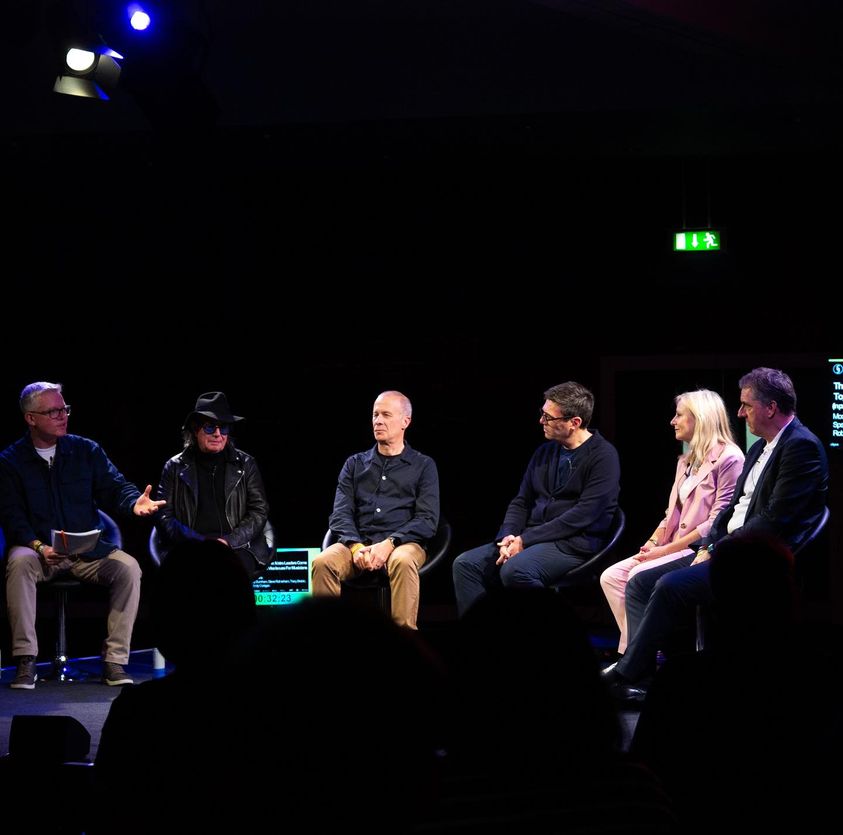
Source: Beyond the Music
What looked like a session that might result in some concrete proposals turned out to be a good-natured but rather aimless chat amongst the politicians while the private sector contributors offered the more structured insight and comment.
Again, the politicians were all from one party. It would have been beneficial to have a panelist from the West Midlands, where there is a Conservative Mayor.
The Liverpool panelist, Steve Rotherham, spoke at length about the economic value to the city-region of ‘big acts’ such as the Eurovision Song Contest in 2023 and the fact that so far Taylor Swift’s only appearance in the North on her world tour will be in Liverpool. There was no comment on smaller venues or on The Beatles’ heritage and how much longer it can last.
Tracy Brabin from West Yorkshire indulged in a lengthy advert from her region but did make some salient points such as that local councils there were paying musicians to help pay their bills and that the northern version of the Brit School would be located in Bradford, the forgotten city of the North and one that suffers from badly blighted neighbourhoods.
Rob Chalice, of Wasserman, the artist development multinational, revealed how its 12,000 shows a year almost disappeared altogether during Covid-related lockdowns.
While there has been a considerable improvement in 2022/23 it is still “the hardest time ever” for small/medium level venues (not arenas, which are thriving). Of course everyone starts off in a small venue.
Andy Corrigan from Visa la Visa, (a “visa specialist for the entertainment industry”) agreed that many artists are being put off from foreign touring by costs and excessive administration but insisted that most countries in the EU have their own regulations for performers rather than following a blanket instruction. Most have a music artist ‘exemption’ to the fundamental rule, but all are different and some people have been deported for exceeding the number of days they could stay.
The 90 days out of 180 visit/stay allowance in Europe on one tour arose out of the Schengen Agreement, not Brexit.
The forthcoming ETIAS regulation for general purpose visas to enter EU countries (from 2024) that require it might be seen as the European version of the US ESTA, and it complicates matters with regard to the requirement for musicians’ touring visas. Perhaps it could help provide a solution?
Again, as discussed in other panels, merchandising activities remain problematic, with some countries requiring payment of VAT on potential merchandise sales before allowing retailable items into the country. However, there are ways around this in some cases.
As music is the best advertisement for the UK it is essential that these issues are resolved with the EU but it is often the case that the EU is the problem, although the political panelists seemed loathe to accept that.
Greater Manchester’s Mayor Burnham made a broad statement that the North’s big city-region Mayors “will execute their views and ask people abroad for their help in dealing with these problems”, which would be a prime example of the power of political pressure applied at a local/regional level to attain a national level result, if they can pull it off.
This was therefore the most productive session in the entire event in that it helped establish a specific, targeted strategy.
Rage with the machines: Taking charge of the AI revolution was guaranteed to attract a big audience, and which was illuminated immediately by a comment from a panelist that he had a robot.
Some takeaways on what AI is giving to and taking away from the business:
- Many AI tools are being used now and have been for some time including auto tune and drum machines, it is not a ‘new’ technology per se
- Machine learning can empower or replace human input. We have a choice. AI can’t do anything for itself. For now
- AI enables people with no training to be musicians
- The question was asked, what problem is AI trying to solve? Why are we doing this in the first place?
- Streaming lowered the barrier to entry but caused infinite choice and infinite competition. AI can only make that worse
- Start-ups often don’t know the licensing requirements to use other people’s work and can engage in theft without realising it
- There is a distinct risk of the market being flooded with low-level content when it is already difficult for musicians to thrive (I would suggest that is the case already)
- People are being scammed live on stage
- The Government is pro-innovation but is unable to provide satisfactory regulation. Technology comes first and solutions later, as is often the case
- Why would any self-respecting artist lend their voice out to AI?
To my surprise there was no wider discussion of the ‘live’ application of AI in music, such as the virtual ABBA show in London.
Personally I didn’t hear anything to convince me that AI won’t kill off music as we know it but in defence of the panelists this subject is evolving all the time and another discussion a year down the line would probably draw some greater clarity about the benefits and dis-benefits of AI.
The session Who’s feeding the grassroots? examined whose responsibility it is to ensure that the latest talent pipeline is part of the success story of live music?
It presented some worrying statistics.
In one year the UK lost almost 16% of its grass roots music venues. One of the panelists runs a small venue in Atherton in the western part of Greater Manchester. In stark contrast both the existing AO Arena and the new Co-op Live venue which opens next year were represented. They will be the first and second largest venues in Europe which suggests that sector is in rude health in the UK, with another eight such venues planned across the country.
To host whom one wonders? Legacy acts? They are the only ones filling arenas.
The AO representative admitted that large venues have historically failed to support the tiny grassroots ones while Co-op Live, which to be fair hasn’t even opened its doors to its first act yet, is still assessing the local ‘eco system’ (which is based on the City Football Group’s Etihad Campus in the near eastern suburbs and the surrounding and ever-expanding area).
The Co-op representative also countered a suggestion that ‘small artist’ spaces at that venue would be in competition with independent venues rather that they would merely “add atmosphere” on nights when major artists were playing.
The representative from SJM, one of the largest concert promoters in the UK, said 2023 has been the biggest year ever for live music but 127 small venues have closed down and he considers it unacceptable for very big venues to let small ones collapse.
He cited an example of a gig by Coldplay in France to 54,000 people, from which 3.5% of the ticket revenue went to the French government specifically to support lower-level independent artists. (But does it actually do that?)
But putting a pound on the ticket fee in the UK for such purposes often causes offence.
I have to ask if that would happen in other industries. Would the company I work for, the world’s largest organiser of exhibitions and conferences as it happens, charge a client extra to subsidise a start-up competitor? I think not.
It was suggested that private companies should match government spending on supporting grassroots music rather than vice versa.
(As a side issue the question arose as to whether charging £1.50 to print out your own ticket was justifiable in any instance).
The conclusion was reached that local support is not sufficient on its own and the problem must be regarded as a national one. It was pointed out that Ed Sheeran’s first live show was in an Ipswich venue, The Smokestack, where there is no local arena to support anyone (unless you count the Ziggo Dome in Amsterdam).
The final session concerned Beyond Streaming: Future planning for the next technology revolution and could perhaps have been combined with the AI session apart from the fact it was a deep dive into technology, using language that went over the heads of some, perhaps many, of the delegates.
Counted amongst the panelists was Jon Vlassopulos, the CEO at Napster, and serial Australian entrepreneur Max Shand of Serenade, who spoke rapidly in a tech language many struggled to keep up with.
Mr Vlassopulos pointed out that ‘The New Napster’ predated streaming with track downloads in a product offering not dissimilar to that of Spotify now, while also opining that music hasn’t yet had its Instagram or TikTok moments. Asia is way ahead of the rest of the world in its development of new applications.
There was some talk about Web3, with Max Shand excited about how it could ‘personalise’ individual performances. Intriguingly he couldn’t quite explain to the assembled audience just what it is that he does while the representative from Bandcamp, Aly Gillani, did just that and sold his product admirably, emphasising how ‘recommendations’ don’t come by way of AI but only from what people are buying. His next app will be a shareable playlist.
In response to the question “is the music industry embracing the technology” the consensus seemed to be that there are too many options for the consumer to contemplate and the next platform could turn out to be a bridge too far.
One question that occurred to me, to ask but there wasn’t the time to do so, and following on from that position, is ‘Will Generation Y (let’s express that as ‘Generation Why’, by which I mean the fast-approaching next generation), simply get fed up with the plethora of technological applications and demand to return to the vinyl and the cassette, as their elders have done already?
On the way to the venue that morning I’d read in a newspaper that a survey amongst I think it was 10-15 year olds had revealed that over 50% of them no longer made or even received calls on their phones, including from their friends as well as their parents, and a slightly smaller ratio no longer engaged in texting either unless it was absolutely necessary.
What does that say about the future of technology in the music business? Discuss.
I have a few minor moans about this session. Firstly it was a little geekish but I suppose that was only to be expected.
Secondly, much of the discussion was at a highly technical level, with a plethora of jargon, from a group of people who could best be described as boffins.
Thirdly, that the discussion took place at an operational and tactical level for most of the time rather than at a strategic one. I was none the wiser about the next technology revolution at the end than I had been at the start.
But was it entertaining? No doubt about that!
Summary
This was an inaugural event and so merits analysis of its pros and cons
What BtM did right
I am a regular conference attendee (and occasional planner of them) in another industry, one which is also global in nature and what immediately stood out for me was the high level of debate in most of the sessions, from individuals who knew what they were talking about and how to present their opinions.
Equally, the chairs of each session controlled each one professionally, with no-one being left out of the conversation. There was a propensity to use excessive jargon, which some of the delegates clearly didn’t get, along with multiple industry acronyms which can be annoying, but that isn’t unusual in any business.
BtM was highly informative throughout and I learned a lot. There was some overlap in subjects by session, notably technology and local vs. national politics, but overall the balance was right.
What they might have done better
My main concern is political. I am hard pressed to think of a single panelist representing the government at any level. While one expects most musicians and others in the business to be left-leaning (about 90%) – and the biggest corporate class of contributor to BLM is the record business (Sony, Universal, Capital Music, Warner Music, Big Hit Music) – at times the event could have been a fringe meeting at the Labour Party conference. One panel had three political party members, two Labour and one Liberal Democrat. Were the Conservative and minor parties asked to attend? Who knows what they might have said. If not, why not?
I am no prude and I can swear with the best of them. But I know when to and when not to. I do it for effect, when the ante needs to be upped not de rigueur, or because I can’t think of an alternative adjective to ‘fucking’.
The language bar was set at the opening event, The Last Supper, but that was a boozy continuation of the 1990s ’24-Hour Party People’ and was perhaps to be expected. A formal conference is a different matter. If any delegate used the word fuck in any of its grammatical forms in my industry they would be asked to leave the stage immediately. Multiple use at a public event (fucking this, that, and the other, ad nauseam as if Slowthai had taken to the stage) simply reveals a slack, undisciplined mind and speakers ought to remember that.
The use of the C word is beyond the pale. The example here was spouted in the ‘Capital Punishment’ session – “Tony Wilson once said ‘why should I go to London to talk to c***s’”. No self-respecting woman would find that acceptable – it is the Rubiales/Hermoso kiss to the power of 10 – quite apart from being disrespectful to Londoners in the audience.
What’s next, calling someone a motherf****r?
Well, enough of that fucking subject.
The event was a tad disorganised at times, with sudden room changes, session overlaps and late running caused by late speaker arrivals while the entire venue was switched from the one that was being advertised only a week before it began. However it was an inaugural event and that sort of thing can be overlooked. The coping mechanisms employed worked pretty well. The trick is to be sure it doesn’t happen the next time and I’m confident it won’t.
I would suggest having a short summary of each session by its chair to conclude it, itemising what was discussed, achieved, and what future action will be taken if any; and an overall event summary by its MC at its termination.
Also a speaker/panelist marking system available to delegates, measured by a variety of metrics such as clarity, usefulness etc and a voting system for contentious topics as they occur, arranged through cell phones or in-house voting system. Such systems also allow for questions to be posed to the audience with immediate response.
Provision of a delegate list and lanyards with names and roles (in big print) would be beneficial. I didn’t have a clue to whom I was talking, throughout the event.
The panelists should avoid jargon. I happen to know what the Department for Media, Culture and Sport is but only once heard it referred to in full. Otherwise it was ‘DMCS’, which sounds like a surgical procedure.
I thought the organisers might have included a short ‘signature’ live performance, at some stage in the conference (at par with the interview with Rita Ora), bearing in mind the number of old stagers who turned out for the opening evening, or have done something innovative with the accompanying music festival, like the Anchor Awards at the Reeperbahn Festival where a final night show in a sizeable venue elects a prize-winning act from those who performed during the event, the judges having viewed a pre-determined short list in situ.
In conclusion there were about 200-250 delegates for the conference, I would estimate. I’m sure that the vast majority departed convinced they had gotten good value for money and that the delegate numbers will rise considerably next year if there is a second edition.
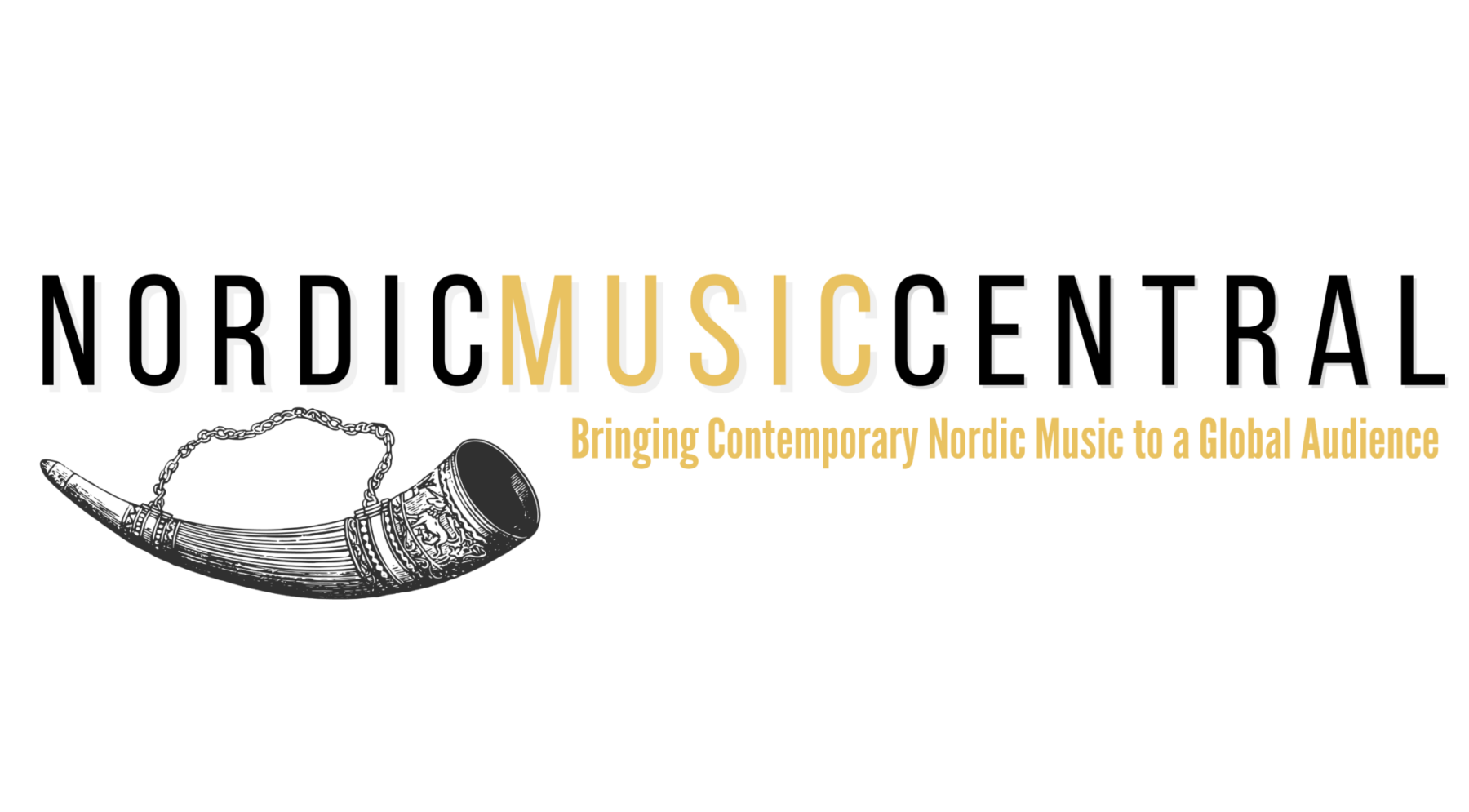
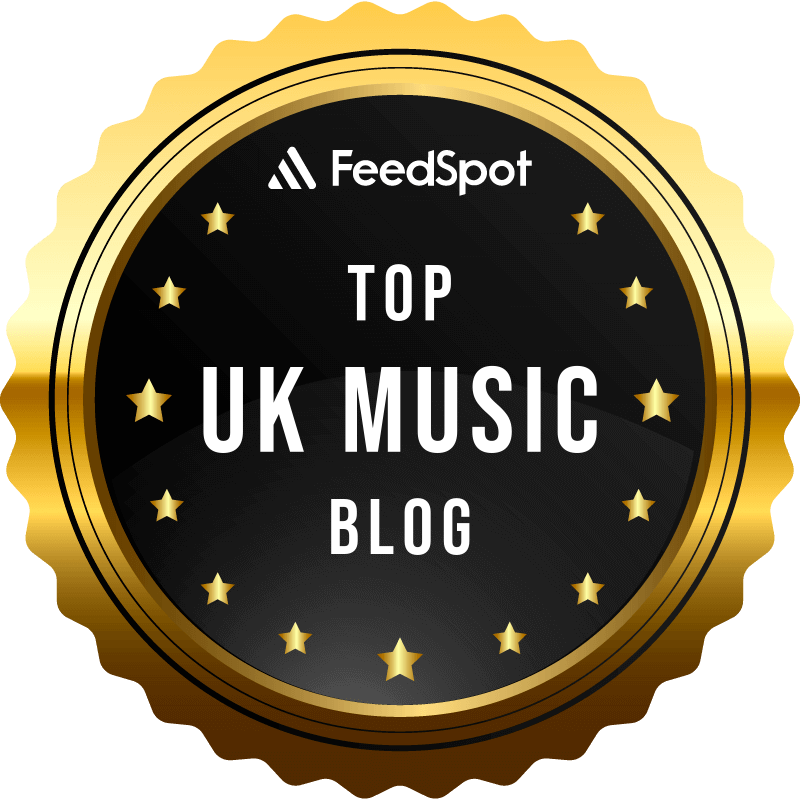



One Response
WOW! What a great article! Thank you David! I’ll read it and learn! :o)